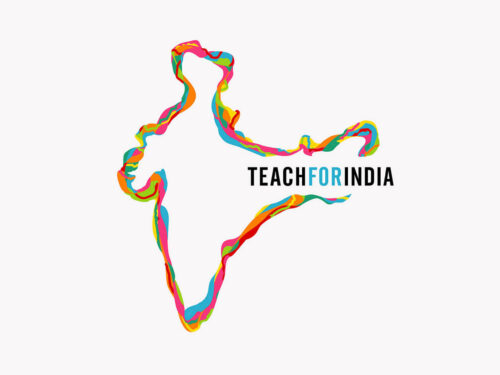
In a exclusive Conversation, UGC Chairman Jagadesh Kumar has ushered in a transformative era in academia. Now, students with four-year undergraduate degrees can chart a direct course towards their PhD dreams by sitting for the National Eligibility Test (NET), bypassing the traditional master’s degree requirement.
This monumental shift emphasizes academic excellence, with aspiring PhD candidates needing to demonstrate outstanding performance, boasting a minimum of 75 percent marks or equivalent grades in their undergraduate studies. Departing from convention, this year’s NET examination will move from the familiar Computer-Based Test to an offline mode, slated for June 16. This change reflects a commitment to inclusivity, embracing candidates from diverse undergraduate backgrounds and paving the way for a new frontier in doctoral studies.
Q. Will students completing 4-year UG courses from any subject be eligible for PhD?
UGC Chairman: Yes, students with 4-year UG degrees can pursue a PhD in any subject, irrespective of the discipline of their bachelor’s course. They can do so by choosing subjects per the NET examination and appearing for the selected subject.This will strengthen interdisciplinary research. Graduates with PhDs in fields outside their undergraduate discipline will possess a broader skill set, making them more competitive in the job market. This broader eligibility gives students more freedom to follow their academic interests, regardless of their undergraduate major.
Q. Will these students not need to MA, MSc, or MCom to get into PhD?
UGC Chairman: Students with a 4-year UG degree (completed or in the last semester/year) will not need a Master’s degree to apply for a PhD. This comes with one condition: the student must have a minimum of 75% marks in aggregate or equivalent grade to be eligible to apply for a PhD. There is a relaxation of 5% for specific categories. If a student does not have the requisite percentage in a four-year undergraduate degree, they would be eligible to join PhD programme after completing a Master’s degree.
Q. Some of the students who enter into 3-year UG courses later decide to do one more year to be eligible for PhD, will they be allowed to do so?
UGC Chairman: Students enrolled in the 4-year UG programme can apply for PhD courses. If the institution allows the students in a 3-year UG programme to transition to the fourth year by providing them with appropriate courses in tune with the National Credit Framework, such students can apply for PhD admissions, provided they have the required percentage in aggregate.
Q. Is UGC going to issue some directive to universities and colleges to allow 4-year UG courses?
UGC Chairman: UGC has been in constant touch with the universities regarding the various benefits of the 4-year UG programmes. Since the National Credit Framework launch, UGC has been writing and holding discussions with universities across the country. Currently, 150+ universities have either started 4-year UG programmes or are starting from the upcoming academic year. UGC has also written to universities to let the students in the 3-year UG programme to 4-year UG programmes with the help of bridge courses for students. This will benefit students willing to extend their third year and devote the fourth year to research. UGC is also actively taking this up with universities and encouraging them to implement these provisions to provide learners freedom, flexibility, and choices.
Q. Some of the students are also worried that will it undermine importance of Masters level courses? How do you look at it?
UGC Chairman: The benefits of pursuing postgraduate studies are numerous. The 4-year UG Programme is introduced to promote flexibility and create alternative pathways for higher education and shall not replace the need for specialised, advanced, and professional postgraduate degrees. The purpose of seeking postgraduation is not limited to merely getting another degree in higher education. It expands the opportunities available to students by bringing them into multi-disciplinary areas. Also, for those working after their 4-year UG degree, a 1-year Master’s degree will provide them with opportunities to upgrade their skills and knowledge.
Q. There is a requirement of 75% marks in required in 4-year UG courses to be eligible for PhD, while very few students in courses related to Humanities, Commerce and Science score this much. What would be your take on this?
UGC Chairman: Those who do not have 75% marks in their 4-year UG programmes can pursue a 1-year PG programme and then write UGC-NET. We are working closely with the stakeholders to encourage Indian universities to start 1-year PG programmes as early as possible, and many of them are launching 1-year PG programmes.
Q. Would be great if you could share the details related to eligibility for PhD for 4-year UG courses? Will they need to give NET or not?
UGC Chairman: A candidate with a 4-year/8-semester bachelor’s degree with 75% marks or equivalent grades is eligible for PhD admission according to UGC PhD Regulations.
A relaxation of 5% marks or its equivalent grade is allowed for those belonging to SC, ST, OBC (non-creamy layer), differently abled, economically weaker sections as provided in the Regulations.
Those 4-year UG programme students who wish to join the PhD can appear in NET. By appearing in the NET, more avenues become accessible for learners. They may become eligible for the Junior Research Fellowship (JRF) award for pursuing a PhD (which was not the case earlier) or eligible for admission to PhD in various universities depending on their performance in the test.

